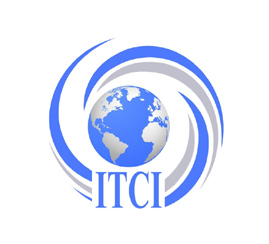About PMP®
ABOUT PMP®
PMP® stands for Project Management Professional. The Project Management Professional certification is a globally reputed and recognized certification in the field of Project Management, and it is provided to project management professionals, who clear the PMP certification examination. The PMP certification is issued by the Project Management Institute (PMI), which is the world's leading association of Project Management Professionals.
Benefits of being a PMP®
•The PMP certification recognizes your expertise in Project Management: The PMP certification tells your current and potential employers that you have a solid foundation of project management knowledge, which could be readily applied at the workplace.
•You will be a member of one of the most prestigious professional groups: By attaining the PMP certification, your name will be included in the largest and most prestigious group of certified Project Management Professionals.
•Better salary: It has been observed that Project Managers, who have the PMP certification, draw more salary than their counterparts, who do not have the aforementioned certification.
•Better job opportunities: With the requirements for qualified Project Managers expected to increase exponentially in the future, the job market for PMP Certified managers will get better.
•Globally recognized by leading companies: The PMP certification is endorsed by leading companies. In fact, they encourage their Project Managers to have the PMP certification.
For further information regarding the benefits of the PMP certification, we request you to visit the following link: http://www.pmi.org/
Course content (Based on PMBOK® Guide - 6th edition):
The course content covers PMBOK® Guide - Fifth Edition concepts and includes Professional Responsibility. Several topics which are not included in the PMBOK® Guide - Fifth Edition but about which questions are regularly asked in the PMP exam are also covered. There is an optimal balance between PMP exam prep and understanding concepts for practical application.
1. Introduction
•About PMI and PMP exam
•Exam-Taking Tips
•Course Overview
•Process Chart
2. Project Management Framework
•What is a project?
•Project Stakeholders
•Organizational Structure
•Product Life Cycle, Project Life Cycle, Project Management Life Cycle
3. Project Integration Management
•Overview of Project Integration
•Develop Project Charter
•Develop Project Management Plan
•Direct and Manage Project Work
•Monitor and Control Project Work
•Perform Integrated Change Control
•Close Project or Phase
4. Project Scope Management
•Overview of Project Scope Management
•Plan Scope Management
•Collect Requirements
•Define Scope
•Create WBS
•Validate Scope
•Control Scope
5. Project Time Management
•Overview of Project Time Management
•Plan Schedule Management
•Define Activities
•Sequence Activities
•Estimate Activity Resources
•Estimating Activity Durations
•Develop Schedule
•Control Schedule
6. Project Cost Management
•Overview of Project Cost Management
•Plan Cost Management
•Estimate Costs
•Determine Budget
•Control Costs
7. Project Quality Management
•Overview of Project Quality Management
•Plan Quality Management
•Perform Quality Assurance
•Control Quality
8. Project Resource Management
•Overview of Project Resource Management
•Plan Resource Management
•Acquire Project Team
•Develop Project Team
•Manage Project Team
9. Project Communication Management
•Overview of Project Communication Management
•Plan Communications Management
•Manage Communications
•Control Communications
10. Project Risk Management
•Overview of Project Risk Management
•Plan Risk Management
•Identify Risks
•Perform Qualitative Risk Analysisc
•Perform Quantitative Risk Analysis
•Plan Risk Responses
•Control Risks
11. Project Procurement Management
•Overview of Project Procurement Management
•Plan Procurement Management
•Conduct Procurements
•Control Procurements
•Close Procurements
12. Project Stakeholder Management •Overview of Project Stakeholder Management
•Identify Stakeholders
•Plan Stakeholder Management
•Manage Stakeholder Engagement
•Control Stakeholder Engagement
13. Professional Responsibility •Professional Responsibility
14. Review and Final Evaluation Exam
•Final Test Questions
•End of Course Questions/Next Steps
-
SIX SIGMA - White, Yellow and Green Belt Certification Courses COMING SOON! ..$0.00


